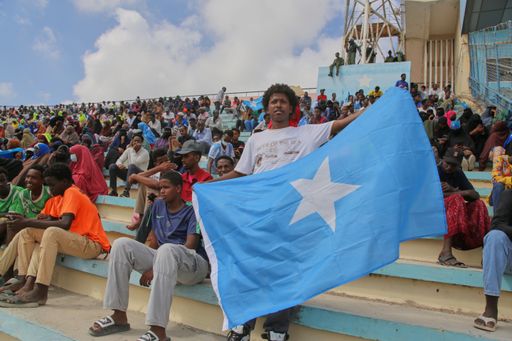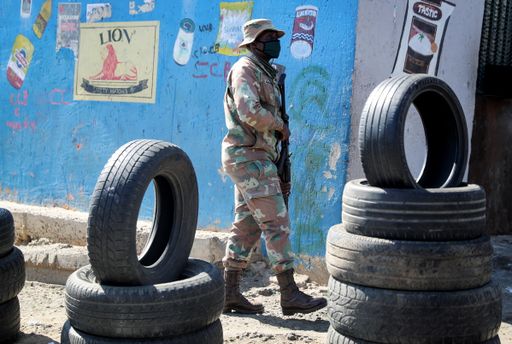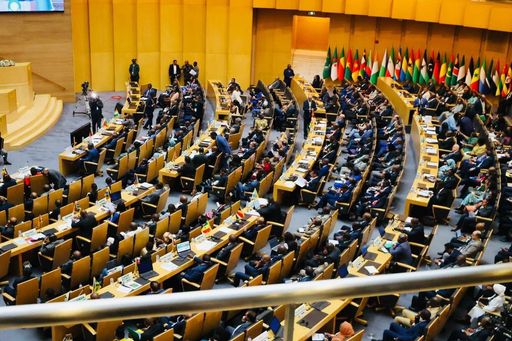Sport
The Ghana Revenue Authority found that the country loses over GHS 10 billion (approximately US $720 million) annually due to smuggling — an amount that could fund critical infrastructure, health, or education programs.
By Dwomoh-Doyen Benjamin
They slip through the borders under the cover of night or in disguise during the day— trucks loaded with sugar, oil, rice, pharmaceuticals and other commodities, bypassing customs checks and tax obligations.
These aren’t simply clandestine business dealings; they represent a multi-billion-dollar hemorrhage to African economies, a destabilising force undermining local enterprise, and a silent contributor to state fragility.
Commodity smuggling, particularly across porous West African borders, is an organised, corrosive activity threatening the continent’s economic sovereignty and security.
In Ghana, where the African Chamber of Content Producers (ACCP) is spearheading an anti-smuggling advocacy campaign, the consequences are alarmingly visible. Legitimate importers are struggling to stay afloat.
Some of the very investors persuaded to bring capital and jobs into the country are pulling out, citing unfair competition and a policy environment that appears unable or struggling to deal with illicit trade.
A recent estimate by the Ghana Revenue Authority suggests the country loses over GHS 10 billion annually due to smuggling — an amount that could fund critical infrastructure, health, or education programs.
But it’s not just a Ghanaian problem. Across Africa, smuggling syndicates exploit weak institutions, corrupt systems, and porous borders to build parallel economies.
They create black markets where unregulated goods, often substandard or even harmful are sold to unsuspecting consumers.
A market woman in Agbobloshie, Ghana revealed how oils meant for industrial use find themselves in the market and consumed by unsuspecting victims due to smuggling.
In many cases, these smuggled commodities undercut local producers and importers, driving them out of business and eroding the formal economy.
According to a report by the African Development Bank, African countries lose between $30 billion to $50 billion annually due to illicit trade and smuggling. Jobs are lost, tax revenue vanishes, and trust in the system erodes.
The long-term impact is devastating: less investment, increased unemployment, and a widening gap between national development goals and actual outcomes.
In March 2025, the Kenya Border Management Secretariat and Ministry of Agriculture reported 2,000 metric tons of sugar smuggled into the country via lorries and small vehicles at a stakeholder meeting in Garissa town.

They warned that local communities are consuming substandard goods, which pose health risks and do not pass Kenya Bureau of Standards checks. Tests by government chemists confirmed that seized contraband sugar contained mercury and copper.
Since 2018, Interior Cabinet Secretary Fred Matiangi has raised concerns that millions of Kenyans may have consumed poisonous sugar disguised as local brands. This raises concerns for the duration of these harmful activities on several Africans.
What’s worse, commodity smuggling isn’t run by desperate traders—it is largely orchestrated by criminal cartels with deep financial reserves and connections in high places.
These networks launder money, evade sanctions, and often use their profits to fund other illicit trades, including arms and human trafficking. The smuggling crisis thus becomes a national security threat, not just an economic one.
The top commodities smuggled across African borders—fuel, sugar, cooking oil, pharmaceuticals, and rice—are often trafficked by highly organised networks that exploit porous borders, weak regulatory enforcement, and political patronage.
According to ENACT Africa, Oil smuggled from Nigeria is reportedly trafficked through Cameroon to rebel forces in the Central African Republic with the country losing an estimated US$1.5 billion a month through oil smuggling.
A 2015 Reuters report also indicated that Al-Shabaab generates approximately $1.9 million annually from sugar smuggling through the Kenya Dadaab refugee camp.
According to the report, this estimate is based solely on Dadaab and does not include other smuggling routes such as Garissa and Wajir, suggesting that the total amount could be higher.
The ripple effects are profound. Apart from the increasing health risks for Africans and smuggling revenues funding terrorism, when African governments fail to collect adequate taxes due to smuggling, they often turn to external borrowing, which increases national debt and stifles public investment.

According to the International Monetary Fund, sub-Saharan African countries' external debt reached $702 billion in 2021, a significant portion of which is attributed to lost revenues from illicit activities such as smuggling.
Smuggling also distorts trade and development goals. Local industries—already constrained by high operating costs and poor infrastructure—are suffocated by unfair competition.
In Ghana, for example, several palm oil processing companies have laid off workers or shut down entirely due to an influx of smuggled, low-cost, and often adulterated alternatives.
According to the Nigeria Rice Development Association (NRDA), Nigeria rice milling sector has lost over $300 million in potential revenue annually due to smuggling, undermining the government’s agricultural self-sufficiency drive.
When businesses are forced to close or scale down due to unfair competition, young people, already desperate for employment, are left with even fewer opportunities.
The World Bank estimates that youth unemployment in Africa is nearing 60%, a staggering figure that highlights the urgent need for economic reforms and an immediate end to illicit trade.
If something drastic is not done immediately, the situation will fester disillusionment over time, and entire communities will be pushed to the margins of economic activityBottom of Form
The African Chamber of Content Producers (ACCP), through its ongoing anti-smuggling campaign in Ghana and across Africa, is raising awareness and mobilising civil society, market associations, and policymakers.
From public interviews to investigative journalism, ACCP is determined to dismantle the veil of silence surrounding smuggling.
But they cannot do it alone, Governments must strengthen border surveillance, enforce customs regulations, and hold complicit officials accountable.
Regional Bodies and the African Continental Free Trade Area (AfCFTA) must go beyond trade facilitation and invest in joint security intelligence, harmonised tariff systems, and regional anti-smuggling task forces.
Consumers, traders, and community leaders must be empowered to detect and report illicit goods.
Africa’s future depends on transparent, inclusive, and rule-based markets.
Every bag of smuggled sugar, every jerrycan of illicit oil, every carton of untaxed rice, is not just a missed tax, it is a stolen opportunity from an African worker, a betrayal of industrialisation goals, and a threat to democratic stability.

The time to act is now. Commodity smuggling is not invisible. It is all around us—robbing our nations blind. And unless we confront it with courage, coordination, and integrity, we will keep losing both money and lives.
The author, Dwomoh-Doyen Benjamin is the Executive Director of the African Chamber of Content Producers (ACCP)
Disclaimer: The views expressed by the author do not necessarily reflect the opinions, viewpoints and editorial policies of TRT Afrika.
Comments
No comments Yet




















Comment